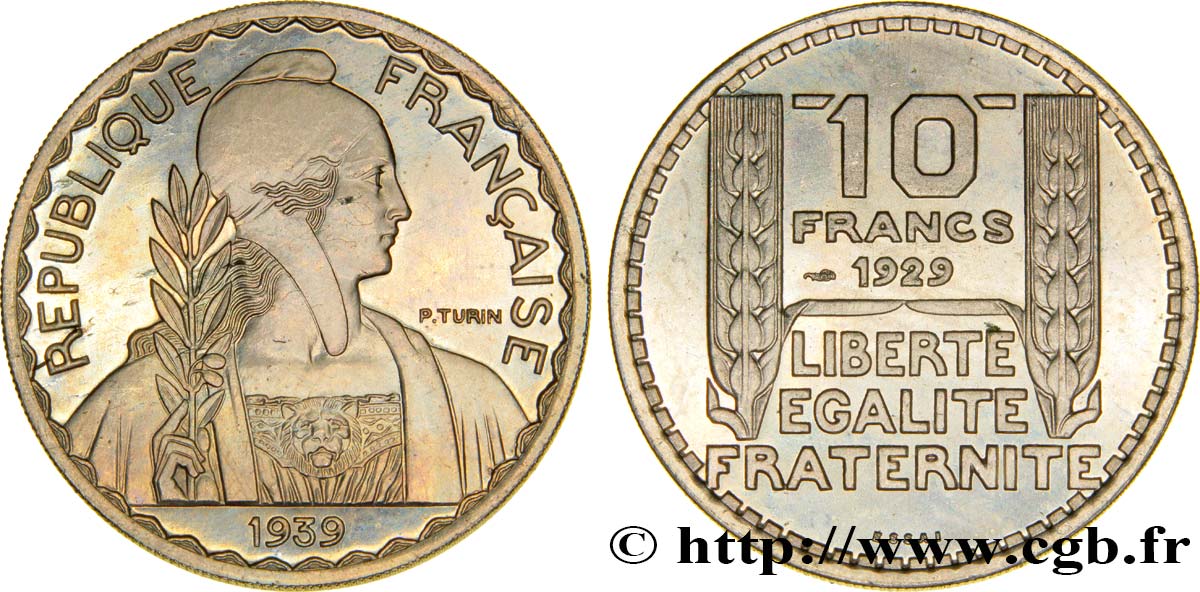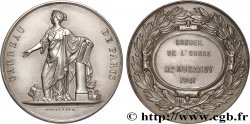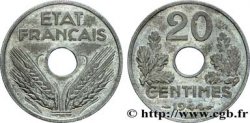fmd_330107 - Préparation de la 20 francs Pétain, grand module, 30 mm, 15 g - Essai en cupro-nickel n.d. Paris GEM.174 4
Not available.
Item sold on our e-shop (2019)
Price : 320.00 €
Item sold on our e-shop (2019)
Price : 320.00 €
Type : Préparation de la 20 francs Pétain, grand module, 30 mm, 15 g - Essai en cupro-nickel
Date: 1929 / 1939
Date: n.d.
Mint name / Town : Paris
Quantity minted : 30
Metal : copper nickel
Diameter : 29,92 mm
Orientation dies : 6 h.
Weight : 15,15 g.
Edge : striée
Rarity : R3
Coments on the condition:
Jolie ombre de patine de teinte rouge autour des reliefs, superbe frappe en camée
Catalogue references :
Predigree :
Cet exemplaire provient de la Collection Michel
Obverse
Obverse legend : REPUBLIQUE - FRANÇAISE // 1939.
Obverse description : buste de la République à droite coiffée d'un bonnet phrygien, vêtue d'une tunique ornée d'une tête de lion, tenant une branche d’olivier de la main droite ; signé P. TURIN devant le cou.
Reverse
Reverse legend : 10 / FRANCS / 1929 / LIBERTE / EGALITE / FRATERNITE // ESSAI.
Reverse description : en sept lignes, entre deux épis de blé verticaux.
Commentary
Selon les informations manuscrites obtenues sur cette série d’essais, la série des six variétés en 30 mm aurait comme poids maximum 14 g. Or, celui-ci pèse très nettement plus de 14 grammes et il semble totalement improbable qu’une telle erreur ait eu lieu. Notre manuscrit ne serait-il pas complet ? L’hypothèse du piéfort est exclue, il s’agit d’essais de travail, pas de présentations de prestige d’un type. Cet essai ne porte que la corne d’abondance et pas de différent de graveur général. Si nous savons que les autres modules et poids furent frappés à 30 exemplaires, il est probable que celui-ci, pour lequel nous n’avons pas d’informations, ait frappé à bien moins que trente, probablement moins de 10.








 Report a mistake
Report a mistake Print the page
Print the page Share my selection
Share my selection Ask a question
Ask a question Consign / sell
Consign / sell
 Full data
Full data









